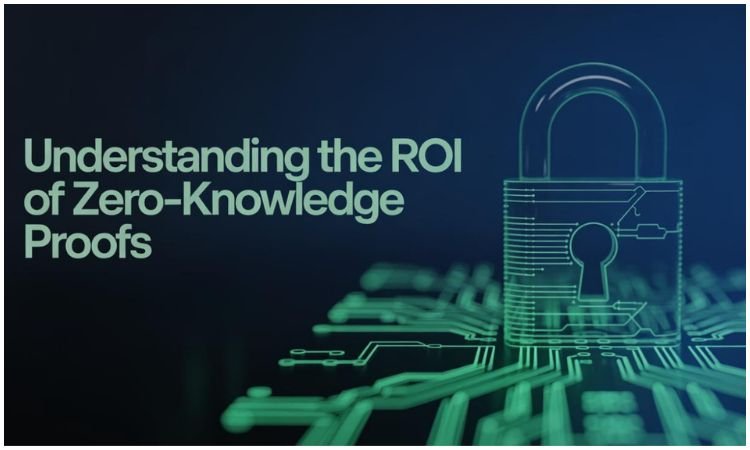
Data is essential in today’s digital world. Blockchain signifies a radical change in the way we store and handle information, whereas traditional record-keeping depends on centralized systems and paper trails. Blockchain is like thousands of identical books carried by different people, making it nearly hard to change records without everyone knowing. Think of traditional systems as a single book kept by one librarian.
In this post, we will explain how blockchain solution differs from conventional approaches, delving deeply into its special capabilities for data management, storage, and security that are revolutionizing sectors ranging from finance to agriculture.
Overview of Conventional Record-Keeping Solutions
For decades, traditional record-keeping has served as the foundation for corporate operations. Both modern databases and handwritten ledgers are examples of traditional systems that centrally store important data.
Common uses in the industry include:
- Banks that monitor daily transactions and client records.
- Farmers document equipment servicing, seed inventories, and harvest statistics.
- Hospitals that preserve patient medical records and histories.
- Governmental organizations that keep records of citizens' taxes and property
These systems' main drawbacks:
- The potential for unauthorized modifications and data manipulation.
- The possibility of total data loss due to system malfunctions.
- Centralized control results in a single point of failure.
- Information sharing across organizations takes a lot of time.
- High running costs for security and maintenance.
- A human mistake occurs when data is entered manually.
Understanding Blockchain Technology
Blockchain is a digital file that records everything, including contracts, transactions, and documents. This technology allows its records to be shared among thousands of computers at once, unlike older systems. Like a super-glued page in a book, fresh information is locked into a block that permanently links to earlier entries.
There are 3 fundamental versions of the system: consortium blockchains, in which certain organizations share ownership, private blockchains for internal company use, as well as public blockchains, which are accessible to everybody (like Bitcoin). Information is transparent and secure thanks to this unique method.
Key Differences Between Blockchain and Conventional Solutions
Data Storage
Conventional systems rely on centralized databases or physical storage areas, where administrators are the only ones with the ability to control and alter data. Conversely, blockchain technology disperses identical copies of data throughout a computer network.
Once information joins the blockchain, it becomes permanent and immovable, like a piece of stone carving. This makes every transaction fully transparent by generating an irreversible record that can be checked by anybody with permission.
Data Management
Conventional systems have a pyramid-like hierarchical framework under which all decisions are made. Delays are often caused by the requirement that every modification be approved and validated by a central authority. Decentralization is how blockchain flips this idea.
Without the need for intermediaries, network users quickly confirm changes. Because all users can see updates instantaneously, the process is sped up and improved.
Security Features
Conventional record-keeping is at risk of breaches and internal tampering since it relies on fundamental security mechanisms like firewalls as well as passwords. Blockchain solution improves security by using advanced consensus and encryption techniques.
Similar to having hundreds of witnesses for every transaction, several players must confirm and consent before any changes are made. It is practically impossible to conceal fraudulent activity with this distributed security method.
Benefits of Blockchain Solutions

Enhanced Security and Trust
Blockchain creates a trusting atmosphere without requiring parties to be acquainted. Every transaction is logged permanently and validated by several network users. Businesses can collaborate with confidence because records cannot be changed or tampered with.
For example, each supplier can instantaneously confirm the legitimacy of transactions when working on a project with another provider.
Improved Efficiency
Blockchain-based smart contracts, which are self-executing agreements, automate a lot of manual, conventional tasks. These contracts automatically take action when certain conditions are satisfied, removing paperwork and speeding up processing.
Essentially, it functions as an automated digital assistant that manages contracts, payments, and verifications.
Cost Savings
Blockchain solution lowers operating expenses dramatically by eliminating mediators and automating procedures. Reconciliation, dispute settlement, and document processing are areas where organizations spend less.
By drastically reducing mistakes made manually, the expenses of error maintenance and rework are reduced.
Traceability and Transparency
Every item’s journey is permanently documented on the blockchain. In agriculture, this entails monitoring produce from farm to table in order to ensure food authenticity and safety.
Immediate product location, condition, and handling history verification by supply chain management greatly improve the efficiency of quality control and problem-solving.
Practical Applications of Blockchain in Various Industries
Agriculture
Blockchain is transforming agriculture by enabling people to trace food from the field to the table. Important information regarding agricultural crops, such as harvest dates, storage temperatures, and soil and water conditions, could be recorded by farmers.
A customer has access to the complete path of their meal when they scan a product code in the store. For example, the story of a tomato from the seed sown in California soil to its arrival at a grocery store in New York becomes accessible, revealing information about farming methods as well as shipping circumstances.
Finance
Blockchain solution are transforming traditional banking processes in the financial industry. Banks are able to conduct international transfers with improved security and reduced fees in minutes as opposed to days.
Insurance businesses simplify the processing of claims, and trading platforms employ blockchain technology to conduct transactions immediately. Delays and disagreements are decreased by smart contracts, which automatically release money when conditions are met.
Real Estate
Conventional systems rely on centralized databases or physical storage areas, where administrators are the only ones with the ability to control and alter data. Conversely, blockchain technology in national security disperses identical copies of data throughout a computer network, enhancing data integrity and security.
While sellers can demonstrate ownership without a lot of paperwork, buyers can easily check property histories. Even rent collection and maintenance payments can be automated with smart contracts, increasing the effectiveness of property management.
Legal Aspects of Blockchain Solutions
Blockchain solution makes real estate transactions easier and more secure. Records of ownership, transactions, and property titles are publicly and permanently preserved. While sellers can demonstrate ownership without a lot of paperwork, buyers can easily check property histories.
Even rent collection and maintenance payments can be automated with smart contracts, increasing the effectiveness of property management.
Comparing Costs: Land Prices and Investment Potential
Blockchain-based digital land records improve the transparency and accuracy of property appraisal, which may have an impact on market prices. Blockchain speeds up transactions and lowers due diligence costs for investors, increasing the accessibility of land assets.
Long-term advantages of blockchain include lower transaction costs, quicker deal closing, and more trustworthy property records, even though early deployment necessitates a large financial outlay. Furthermore, smart contracts can automate property management as well as rental payments, boosting the possible returns on real estate investments.
Conclusion
Blockchain technology has led to a major change in how we manage data, carry out transactions, and establish trust in business. Its exceptional efficiency, security, and transparency offer industry-wide transformational potential.
For professionals and enthusiasts looking to harness this revolutionary technology, exploring the best blockchain technology courses can be an essential step in gaining the skills needed to thrive in this evolving space.
Regardless of your industry finance, real estate, or agriculture blockchain technologies can lower expenses and streamline processes.
Now is the perfect moment to investigate how this technology may help your company as it develops further. Discuss about your blockchain adventure, including your achievements, difficulties, and revelations.
Ready to investigate blockchain technology for your company? Get regular updates, case studies, and insights by subscribing to our newsletter.







